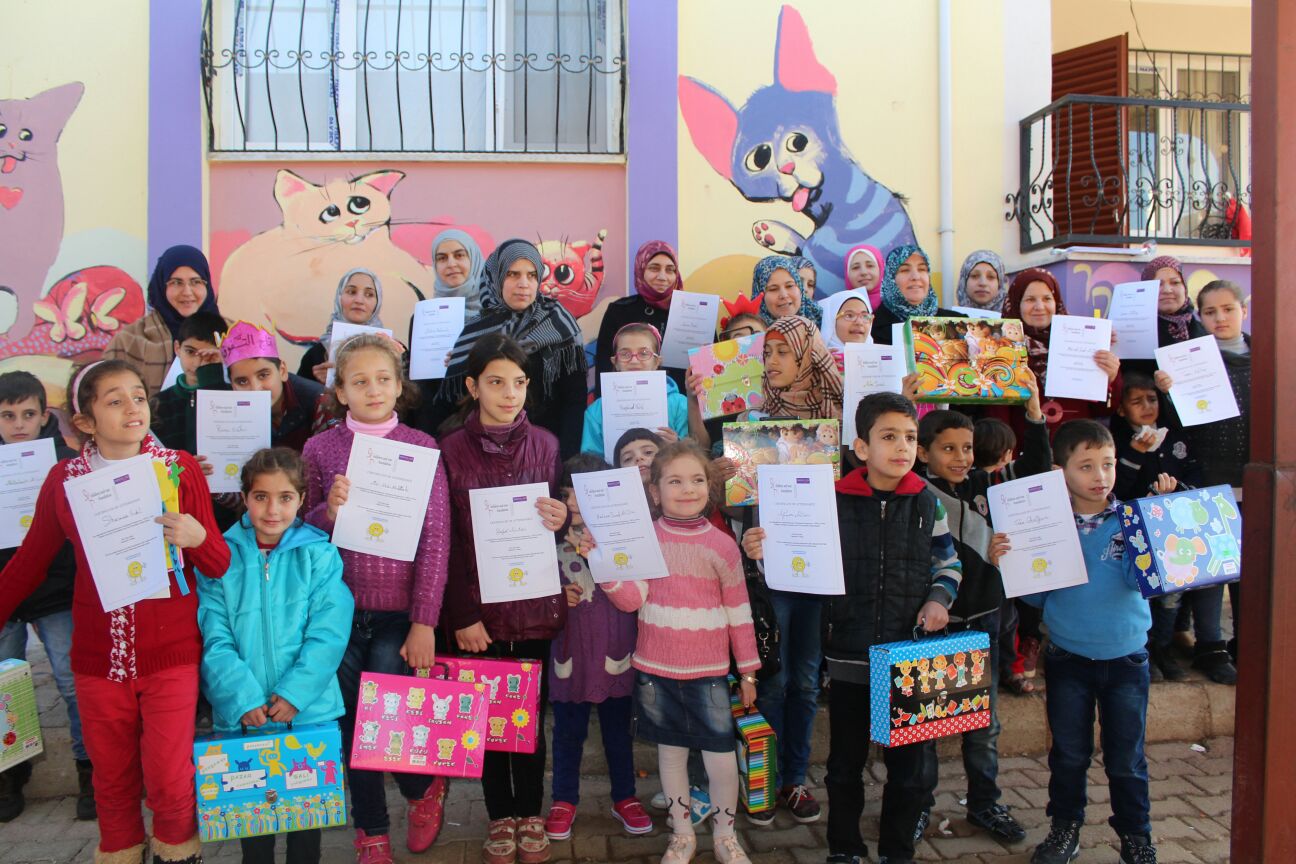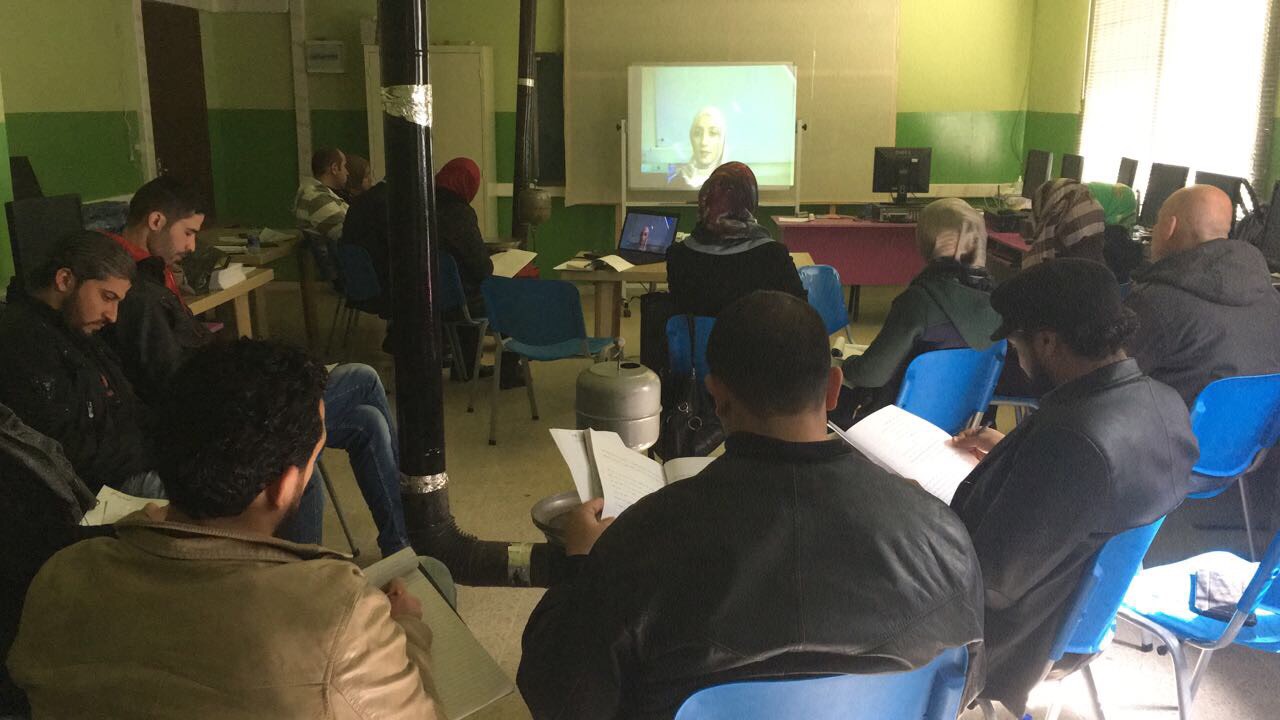Parenting skills support for Syrian refugee families
Background to the research
Our work on parenting interventions globally includes a focus on parenting through conflict and displacement due to the Syrian crisis. We have assessed the parenting challenges displaced families face and their specific parenting needs. We identified demand from caregivers for parenting support to manage their own stress and children’s trauma-related behavioural and emotional changes and maintain helpful parenting strategies. We have also looked at measures for child mental health in this context. This research was led by Professor Rachel Calam, Dr Aala El-khani and Dr Kim Cartwright.
Teaching Recovery Techniques
We collaborate with the Norwegian-UK Children and War Foundation who developed the evidence-based Teaching Recovery Techniques (TRT) programme for children aged 8 and over. The TRT programme is implemented in humanitarian settings internationally to reduce child trauma-related distress and promote emotional wellbeing. With seed funding from Research for Health in Humanitarian Crises (R2HC), we enhanced TRT's five child sessions and parent sessions with additional parenting skills. The new parenting sessions complement TRT’s existing caregiver sessions and address parenting needs identified in studies we conducted with families on the Syrian-Turkish border (e.g. communicating effectively and positive disciplinary approaches) and humanitarian organisation surveys and focus groups. Together, this forms a brief, 5 week combined programme for children and their caregivers, TRT Plus Parenting (TRT+). This research and manual development was led by Professor Rachel Calam, Dr Kim Cartwright and Dr Aala El-khani.
Aims of our research
TRT has already demonstrated significantly improvements in mental health in children affected by conflict and displacement, and also in natural disasters. We have tailored the parent and caregiver component to the Syrian context. A recent pilot study of TRT+ has tested the feasibility and acceptability of delivering the programme to families displaced by the Syrian conflict. Our qualitative data shows very positive results. We have tested the potential of this programme to enhance mental health in families displaced by the Syrian conflict, comparing TRT+ with the original TRT and to waiting list to see if the adapted TRT+ is more beneficial to families.
Pilot Study in Turkey
We have conducted in-country training in TRT+ and intervention evaluation for staff of NGO WATAN on the ground in Turkey. The programme was successfully carried out over 5 weeks and all indications are positive. The data collected from the research has been used to guide the development of a full randomised controlled trial evaluating the effectiveness of TRT+ in improving child and adult mental health and parenting in families displaced by the Syrian conflict.

El-Khani, A., Cartwright, K., Redmond, A. D., & Calam, R. (2017). Testing the feasibility of delivering and evaluating a child mental health recovery programme enhanced with additional parenting sessions for families displaced by the Syrian conflict: A pilot study. Peace and Conflict: Journal of Peace Psychology
TRT+ Parenting Randomised Controlled Trial in Lebanon
We conducted a randomised controlled trial to explore whether enhancing a child mental health recovery programme, Teaching Recovery Techniques (TRT) with parenting sessions is more beneficial for families than the original TRT programme. A study was conducted in the Beqaa Valley in Lebanon with Syrian refugees that had fled their homes in Syria. We worked with a Lebanese NGO, Social Support Services. Dr Aala El-Khani provided training to 16 facilitators and two research assistants via Skype from Manchester to support this trial. The results indicated that TRT Plus Parenting leads to higher levels of improvement both in children’s and caregivers’ mental health. We gratefully acknowledge funding from ESRC, the Children and War Foundation and UNODC.

